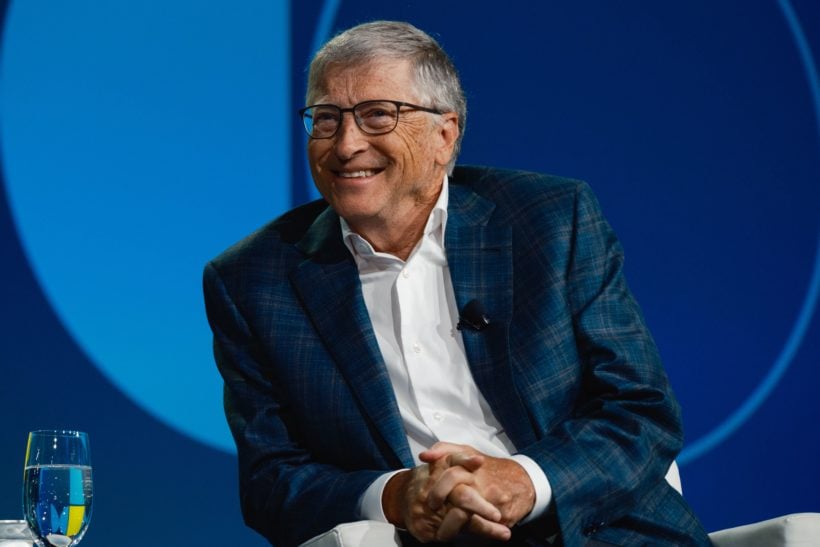
Microsoft co-founder Bill Gates says artificial intelligence could transform production systems worldwide while fundamentally changing industries such as health and education.
While some experts are concerned that the nascent industry could threaten the survival of the human race, the American billionaire and investor points out that humanity has ridden out the creation of dangerous inventions such as nuclear weapons and viruses in the past.
“AI by itself, I don’t see as a threat,” Gates said in an exclusive interview with CNBC Africa. “There is a lot of long-term affects where AI could make us all so productive. It will change how we use our time but, we need to roll it out and we need to get the benefits which in every domain, particularly health and education, I am very excited about.”
Governments and companies globally are scrambling to harness and expand the opportunities that artificial intelligence is opening up in fields from industrial applications to language. Gates says it’s the most transformative innovation of our era.
“AI is a fundamental breakthrough, and in fact, the Bill & Melinda Gates Foundation is using AI in a lot of ways,” he says referring to work done in the foundation’s 7th edition of the Goalkeepers Report, which he co-authored with Melinda French Gates, his ex-wife.
He cites an AI enabled portable ultrasound that empowers nurses and midwives to monitor high-risk pregnancies in low-resource settings to ensure that risks are diagnosed and addressed early.
In developing countries where hospitals are perennially battling shortages of doctors, Gates said AI can potentially accelerate science and help discover more vaccines as well as speed up new drug discoveries. According to Fox News, a new AI-generated COVID drug has entered the first phase for clinical trials, showing that AI is taking center stage in medicine.
“Over time, we see AI actually providing medical advancement. We are having a shortage of doctors and to make doctors more efficient, we give you an AI agent to help with medical advice. We also use AI to speed up the discovery of new drugs and vaccines,” he told CNBC Africa’s Godfrey Mutizwa. “Obviously, we are still missing the HIV, TB and Malaria vaccines so everything that accelerates science is very helpful.”
Across the globe, regulatory concerns are growing particularly relating to AI’s potential harm. In China, the world’s second largest economy, the government has taken the lead and outlined domestic regulations. But Gates suggests regulation is not yet.
“Well so far the AI hasn’t caused any huge problems and I think it’s great that there is this whole discussion,” he says. “Most of the discussion is about future versions that would be even more powerful than what would be rolled out in the next 3 to 4 years.”
Later Wednesday, U.S. Senate Majority leader Chuck Schumer is convening a cross party gathering with technology industry leaders including Gates, Tesla founder Elon Musk, Google CEO Sundar Pichai and Meta CEO Mark Zuckerberg to discuss regulating AI.

